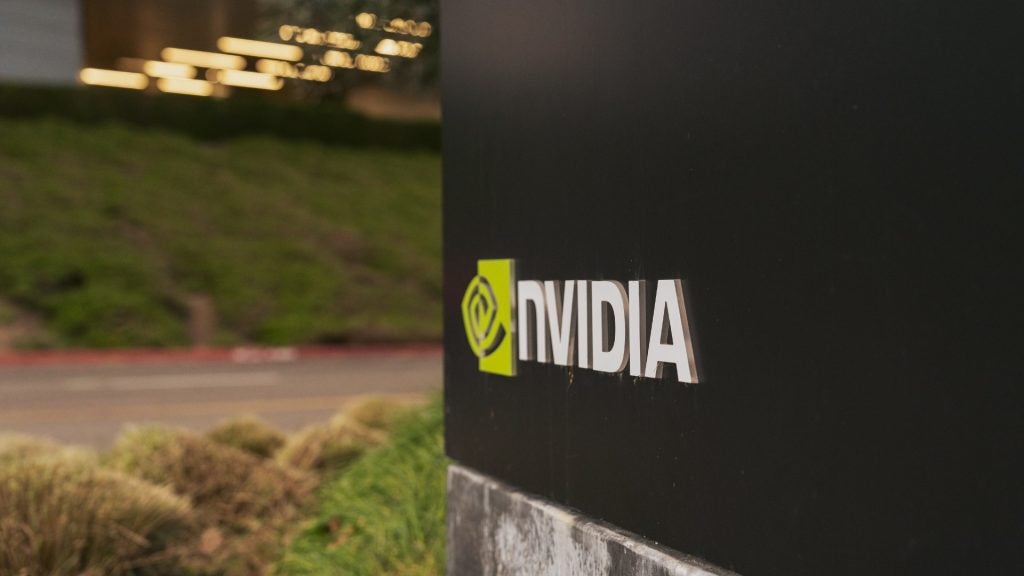
Manufacturers looking to buy or invest in start-ups is hardly a new phenomenon, but BMW Financial Services has gone a step further with the Innovation Lab, a 10-week long accelerator project designed to help develop both fintechs and the company itself. Motor Finance profiles the five participating businesses
Online finance has proved to be a boon for start-ups and innovators in business.
In financial services, this has never been more the case than now, with hundreds of companies looking to use new technologies and techniques to innovate specific parts of the industry.
Generally put under the umbrella term ‘fintech’, these companies are capable in some cases of adding real value to a proposition or, in other cases, totally disrupting existing business models.
How companies react to these new developments could eventually have a huge impact on the future direction of the industry.
Over recent years, there have been a number of examples of manufacturers looking to buy start-ups or invest in them, as they dip their toes in the worlds of autonomous cars and car or ridesharing.
How well do you really know your competitors?
Access the most comprehensive Company Profiles on the market, powered by GlobalData. Save hours of research. Gain competitive edge.

Thank you!
Your download email will arrive shortly
Not ready to buy yet? Download a free sample
We are confident about the unique quality of our Company Profiles. However, we want you to make the most beneficial decision for your business, so we offer a free sample that you can download by submitting the below form
By GlobalDataMore recently, BMW Financial Services (BMW FS) launched its Innovation Lab, a 10-week long accelerator project designed to help develop both the fintech companies, but also BMW FS itself.
Speaking to Motor Finance as the Lab reached its half-way mark, Jonny Combe, general manager, product and channel development at BMW FS, and one of the drivers behind the lab, says: “We saw there was an opportunity in the market.
“It seems just right for disruption. We’ve got lots start-ups operating in this financial services space, in the automotive space, and we thought we wanted to create something that plays to our strengths of being a large organisation with a really premium brand and really loyal customers, but also leverages the expertise that’s out there in the market, and come up with something that’s going to be mutually beneficial for both parties.”
An initial 130 applications were narrowed down to around 25, who pitched to BMW heads in London. Of these, just five companies were chosen to enter the Lab: Divido, Drover, ukvehicle.com, Warwick Analytics, and Wrisk.
The five companies are fairly diverse, however Combe says this proved to be more of a happy accident than the result of a set plan. “I’d love to say we set out to achieve a partnership with each one of these five distinct types of companies,” Combe said. “It’s worked out like that, and we’re really pleased with that, and that did influence our decision-making on the day, but as with all these things, you don’t know what it’s going to look like until you embark on it.”
Although there’s a potential opportunity for an investment from BMW FS, this is not guaranteed. For Combe, this is also missing the point of the Lab. Although the process might end with some investment, it also might not.
Instead, it is the access to a large motoring organisation that is the real prize on offer – the chance to work closely with a captive and an independent lender for 10 weeks, and potentially beyond. As Motor Finance found out, the five finalists shared this view.
UKVehicle.com
ukvehicle.com describes itself as a consumer-led used car buying information portal. The company has existed for five years, having spotted a gap in the market. While the UK is well served by the likes of cap hpi and Glass’s in areas such as residual values, these companies both focus on the B2B market. Where ukvehicle seeks to differentiate itself is by focusing on the B2C market.
Tom Wood, director at ukvehicle.com, says: “Ultimately we’re fairly different for taking that consumer-led approach to it. We’ve got a very different way of modelling data, and our approach to forecasting car valuations and forecasting RV is quite different from cap and Glass’s.”
That’s not to say the company does not have a B2B offering, as it works with a number of companies in the industry, including dealers and insurers, however its prime market is the consumer business. Overall, the company aims to be seen as the “Zoopla for cars”.
Wood notes: “The car is the second-most-expensive thing you buy after a house. There are lots of tools out there to value and understand the associated costs of owning a house. From a car point of view, it’s actually fairly poor right now.
“So we want to be the single port of call for consumers to understand what their car will be worth in three years’ time, what the servicing cost will be in that period of time, or the ownership costs will be during that period of time.”
To that end, the company spent the first three years of its existence building its database, pricing models and so on. As a consumer business, the current website has only been around for two years. Despite this, Woods is able to boast that the company has the highest traffic car-checking website in the UK.
This database has been able to give the company some interesting insights into pricing trends. One example of this was on the impact of Brexit on car values. For classic cars, the vote to leave the EU and subsequent fall in value of the pound have driven foreign buyers to come in and buy more stock, increasing the value of the vehicles involved.
Classic and prestige cars are an area Wood sees as a particular strong point for the company. He notes: “There is a lot to be done in terms of understanding better low-volume cars, like classic cars. It’s where we started as a business.
“We wanted to create a better understanding of how classic prices were changing over time. So our data is pretty strong in terms of classic and low models, so super cars and things like that, we’re able to price those very accurately.
Typically a consumer will use the company when they are about to buy a car. According to Wood, the site is usually one of the final steps before buying – the customer will have generally already been to see the car, and will be making final checks.
This is partly to check the price, and partly to check to see if the car has any history the prospective new owner should be concerned about, as ukvehicle.com also offers a full provenance check.
Divido
While the market for financing cars at point of sale is generally pretty well looked-after these days, Divido believes dealers have been missing an opportunity by not offering finance for servicing cars.
For Christer Holloman, CEO and co-founder of Divido, this also presented his company with an opportunity to look at.
Divido is a two-year-old company, and recently took in a £2.5m investment to help grow the business, with an eye on expanding internationally in 2017.
The company acts as an intermediary between retailers and finance providers, and offers a paperless solution which allows the retailer to offer finance digitally. Customers are able to apply from their mobiles, for example, even signing agreements from home, potentially.
As with other intermediaries, Divido makes its money through a set-up fee, a monthly service fee, and a commission kickback on any finance arranged on the Divido platform.
Divido’s current plan, and the reason it applied to join the Lab, is to look at where finance could be introduced into dealer servicing arrangements.
The Lab has provided Divido with access to the right people at BMW to discuss the potential here, and Holloman acknowledges: “As a small company, it’s difficult to know exactly who we need to speak to, whereas through a programme such as this, you’re being coached in the right direction, and the people you’re put in front of are anticipating that you will be approaching them.”
At the moment BMW FS does not finance aftersales, services, accessories, or lifestyle products – for example BMW-branded bicycles and clothing. Divido has a panel of lenders which would be willing to lend for these types of product and service, and for Holloman, this relationship makes obvious sense.
Although the company did not go into details about what is planned, it expects to carry out some sort of pilot in the future to develop a product. For now, Holloman already has enough experience with unsecured finance to predict roughly what types of rate to expect.
Divido’s finance rates go as high as 24.9% APR, but as low as interest-free. For those that charge interest, he says 9.9% or 14.9% tend to be the most popular. “It’s up to the retailer; do they want to subsidise the cost or do they want to pass it on to the customer?”
Overall, the most popular product tends to be interest-free, Holloman explains: “Interest-free is our most popular solution because the retailers think of it as a sales and marketing expense. In the same way they’d advertise online, in print, by handing out fliers or whatever, that’s a cost.”
Key to this is understanding the kinds of margin a service has, and Holloman adds: “You’ve got to get that from your margin. It’s the same thing with finance; you have to take a little bit away from the margins knowing you’ll attract customers.”
Interestingly, although Divido joined the Lab to work with BMW FS, as things have progressed, the company has also begun talking with Alphera, and it’s clear the company is keen to explore what could be done in the independent space in the future.
Warwick Analytics
Finance companies are gathering more data than ever before, and with cars and customers increasingly connected, the amount of data available looks set to increase.
While collecting this data may pose a bit of a challenge, the real problem is knowing what to do with it. Different finance companies are meeting this challenge in different ways, and Warwick Analytics believes it is able to add value in sifting through this data to produce products.
Describing the company as dealing in “automated predictive analytics with heterogeneous data”, CEO Dan Somers says this type of data and analytics is currently only understood at a basic level in much of the financial industry. Somers notes that, on starting in the Lab: “We realised that motor finance is a very conservative industry, even within retail financial services.”
As a result, Somers says since joining the Lab he has found a number of areas where he thinks the industry could do a better job. The first of these is predicting when customers will terminate, when to contact them about renewing a lease, and which customers to contact about this.
At the moment, he says: “BMW FS does OK, but they are, I’d think they would admit, overwhelmed by the prioritisation of thousands of leads with an imperfect information flow between them and the retailers, etc.”
Somers adds: “Our vision is to optimise that process, to score leads and opportunities, and potentially even to pre-empt people calling in to settle at the optimal time.
“Just like with your mobile phone provider, hopefully you’ll get a call just before you’re angry, before you’ve made the decision to switch; that’s what we’re trying to do with this.”
Rob Martin, vice-president of sales, adds that in many cases BMW FS was already collecting the data for this. What Warwick Analytics brought was the ability to make better sense of this data and provide insight based on it.
“Being able to come in and make sense of what their data represents and actually be able to build a solution that adds real value, and allows them to understand what they have got and what they haven’t got, and be able to amend that. It’ll be of real value for BMW,” he adds.
For Warwick Analytics, a key consideration is how to take a wide range of data, automate some of data analysis, and use this to create a product to improve areas like retention at BMW.
Putting this more concisely, Martin notes: “With big data, the best way I could describe it is that for everyone else it is a large project; for us it is a product.”
Drover
Drover’s business model is based around the idea that cars are often underutilised, and that a better use for them would be to rent them out when they are not being used.
In some respects, this could be seen as being similar to Airbnb, a comparison Parit Patel, head of growth (special projects) at Drover, describes as being not too objectionable on a surface level. However, he says those at Drover do not think of themselves in this way.
He explains: “We don’t see ourselves as in the carsharing model, because carsharing is when the asset can be used by more than one person at the same time. Airbnb is home sharing, because you can have people using different rooms at the same time. UberPool is carsharing because you have different customers at the same time. For us, it’s one agreement, one owner.”
That said, Patel sees Drover as part of the sharing economy, and nowhere is this made more clear than the fact that it is an Uber preferred partner, and that more than 90% of the drivers currently on the site are Uber drivers.
Typically, cars come from three sources. Some come from individual consumers who want to list their cars to make some money while the vehicle would otherwise not be used. Others come from fleet owners who might have 20 or 30 cars, and who are in the business of buying and renting out cars. Finally, Drover attracts investors, who see the model as a way to make good returns. These include venture capital firms which often buy a car and then immediately rent it out.
The pricing of the cars is dictated by the suppliers, who are in turn dictated to by market forces. Patel notes the key fact that rental returns have to be superior to the depreciation caused by the additional miles driven.
As a result, he admits: “Typically we find the case is strongest with used cars, because you have the depreciation effect slowing down.”
However, he adds: “But what we find is, at any point you’re still earning more money if you’re renting the car out than the depreciation impact. It’s a compelling case for someone to buy a car, and give it to us.”
As a result, Patel does not see the need to leave cars unused, when instead they could be used to generate revenue: “There is so much underutilisation of vehicles everywhere. You see them lying around in people’s driveways, car dealerships, fleet owners, just not using their cars. What we want to do is build a tech marketplace where it’s really easy just to rent a car. We are in the process of developing an app, and we have a website.”
One key to success with this type of product is ease of use. To rent a car on the website, a vehicle owner hands over the vehicle documents, and says what price they wish to rent the car for. Drover will offer fleet insurance, as most private consumer will not have this, and then list the vehicle.
Once a driver has selected the vehicle for rental, Drover will give them the location where the owner is based, and the renter and driver will communicate from there. Once the vehicle comes back, the owner will inspect the vehicle with the driver, with damages coming from a deposit held by Drover.
According to Patel, so far there have not been any major disputes, and Drover manages the whole process.
Wrisk
Wrisk’s pitch is fairly simple. According to co-founder Darius Kumana, the insurer looks to differentiate itself in two key respects. One is that it views traditional insurance as too siloed, with life insurance, contents insurance, motor insurance, GAP insurance, and so on.
“One of the things we’re trying to say is ‘actually they’re all insuring the same thing: me. Why can’t I have something that is tailored around me and my needs, across all the aspects of my life?” Kumana says.
The second area in which Wrisk is looking to distinguish itself from the competition is how it explains premiums.
Kumana describes this as being about trying to show what makes a better or a worse risk. For example, it’s common knowledge that smoking is bad from an insurance perspective, but how does it compare to drinking a bottle of wine every night? Is one any worse than the other?
“Once you can start to make those trade-offs, and those value judgements, you can focus your efforts on the things that really make a difference. We believe customers want knowledge, and they want the power to better understand what the industry is essentially making judgements about,” he adds.
While this does sound like an ambitious project – creating a single product to cover what has traditionally been a number of different areas of insurance, while also presenting consumers with more information than before – it also raises the question of what Wrisk hopes to get out of the lab.
Kumana explains the company’s approach to holistic cover requires time and effort to build up, and the Lab is clearly a good way for companies such as this to learn about the competitive motor market.
Prior to joining the Lab, Wrisk only had a limited knowledge of BMW Group, thinking, for example, that “BMW was BMW”.
Having worked there for five weeks now, however, it has learned the lay of the land, such as the difference between BMW, BMW FS, Alphera and so on.
Describing what Wrisk is aiming to build for the Lab, Kumana says he’s looking to streamline some of the insurance-buying parts to buying a car.
When buying a BMW, he says, the whole experience is very personal – right down to choosing the colour of the stitching. “Whereas that is a positive, when you’re buying a car and someone offers you 11 different insurance products on it, that’s probably less exciting,” he adds.
What Wrisk is looking to do is find a way to reduce the number of options presented to customers at the outset in order to streamline the experience, while simultaneously retaining the flexibility and control around the purchase experience presented by the traditional way of buying finance.
“We believe the Wrisk proposition could work very well in a world that supports retailers and also in a direct-to-consumer model. In both those circumstances we’ll have some-thing quite compelling to offer,“ Kumana concludes.







